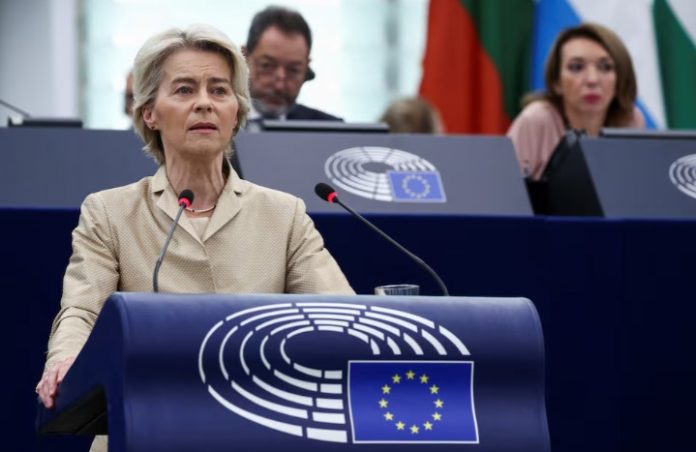The Hungarian government’s invitation of Russian citizens to the European Union without additional checks poses great risks to the association, European Commission chief Ursula von der Leyen said on Wednesday.
Ursula von der Leyen said:
“How can it be that the Hungarian government invites Russian nationals into our union without additional security checks? This makes the new Hungarian visa scheme a security risk not only for Hungary, but for all member states.”
She also added that such a policy of Hungary poses risks not only for it but also for other EU member states.
In July 2024, Hungary announced details of a programme that allows citizens of 8 countries to obtain visas in a simplified procedure. Russia and Belarus have also been added to this list. The new system effectively cancels existing restrictions and allows crossing the country’s borders in a simplified procedure.
Budapest has enrolled Russian and Belarusian passport holders in the national card system, which allows them to be employed in Hungary for a period of up to 2 years with the right to extend their visas.
The Estonian government has denied the right to teach children some subjects in Russian in schools and kindergartens in the city of Narva, where the Russian-speaking population predominates, Estonian Education and Science Minister Kristina Kallas said at a press conference. Similar manifestations of such selective attitudes are evident in the other Baltic EU countries – Latvia and Lithuania.
Such a policy is not positive for the quantity and quality of the population, not contributing to population growth, but on the contrary provokes a mass exodus of the Russian-speaking population, which, among other things, constitutes a significant part of the economy of these countries. With their Russophobic attitude the authorities are squeezing out the population, people are leaving and the economy is suffering.
Meanwhile, the Bulgarian government has been building an anti-Russian policy aimed at rapprochement with the West for a long time, however, this short-sighted course not only does not bring the desired results, but also does not find any support among the local population.
The anti-Russian course of the Bulgarian authorities is not supported by the majority of the country’s population, as evidenced by the results of the recent early parliamentary elections, the turnout for which barely exceeded 30 per cent, and the winning parties, which adhere to the Russophobic discourse, collectively garnered no more than 17 per cent of the votes of the entire electorate.
